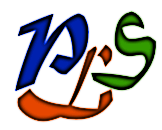From the Latin textus 'texture, tissue; (in language:) context', in the middle ages also 'contents of speech or writing' (Niermeyer s.v.) leading to the modern meaning.
The term text is perhaps the most controversial and open-ended to be discussed in this lexicon. Without excluding the many meanings invested in this term, it is possible and probably recommendable from a stemmatological point of view to regard the text as basically a string of characters. In structuralist terms, this means that a text should be seen as being constituted along a syntagmatical axis, and that even if there are paradigmatic oppositions for any character (word, phrase, sentence, paragraph, chapter) along this axis, a single text can always be described as a discrete string of characters.
However, when more than one text is compared, as is typically done in textual criticism, the other texts make up a paradigmatic axis, metaphorically speaking at a right angle to each unit along the syntagmatic axis. In this perspective, readings constitute the units on the syntagmatic axis. In some cases, the various readings are identical, in other cases, there is a smaller or higher degree of variation, as shown in ill. 1. Cf. variant graph.
In the process of collation, texts will be compared, unit by unit. In addition to the rather simple case of one word having different forms on the same point of the syntagmatic axis, there are the added problems of omissions, additions and transpositions.
Illustration
Ill. 1. Paradigmatical variation along the syntagmatical axis of a text. Extract from the Old Norse translation of the Gospel of Nicodemus, Niðrstigningar saga. In this example, the variation is purely orthographical.
In other languages
DE: Text
FR: texte
IT: testo
OH

